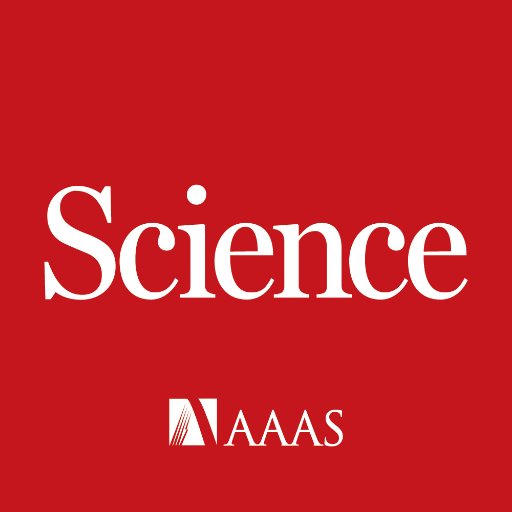
Chownlab
@Chownlab
Followers
397
Following
55
Media
18
Statuses
254
Melbourne, Australia
Joined March 2014
Multiple introductions, polyploidy and mixed reproductive strategies are linked to genetic diversity and structure in the most widespread invasive plant across Southern Ocean archipelagos. https://t.co/uCksoYIlcF
onlinelibrary.wiley.com
Biological invasions in remote areas that experience low human activity provide unique opportunities to elucidate processes responsible for invasion success. Here we study the most widespread...
0
0
0
Protect global values of the Southern Ocean ecosystem
science.org
Climate change and fishing present dual threats
0
1
3
Male Mediterranean fruit flies prefer warmer temperatures that improve sexual performance https://t.co/bIzxME2ZEd
0
1
1
Emerging biological archives can reveal ecological and climatic change in Antarctica
onlinelibrary.wiley.com
Antarctic and Southern Ocean biological archives such as extant moss beds and peat profiles, biological proxies in lake and marine sediments, vertebrate animal colonies, and extant terrestrial and...
0
0
2
Is there a cost to natural cloning? In a new Science study, researchers studied a parthenogenetic grasshopper with a hybrid origin and found no decrease in fitness, across many traits, relative to its sexual counterparts. https://t.co/ljNmGyRR3e
4
14
57
Parthenogenesis without costs in a grasshopper with hybrid origins
science.org
Persistent parthenogenesis shows no fitness costs in the grasshopper Warramaba virgo, which has colonized a wide area.
0
1
2
Using near‐ground leaf temperatures alters the projected climate change impacts on the historical range of a floristic biodiversity hotspot
onlinelibrary.wiley.com
Aim Species distribution models (SDMs) have been used widely to predict the responses of species to climate change. However, the climate data used to drive these models typically represents ambient...
0
0
1
Heat stress is unavoidable for vulnerable informal settlement residents in the tropics. @_Emma_Ramsay discusses her findings, published by @iScience_CP
https://t.co/1exo3s2Kp8
0
1
1
New research in @iScience_CP shows that heat stress is unavoidable for vulnerable informal settlement residents in the tropics @MonashBiol @Monash_SPHM @CHE_Monash @hasanuddin_univ
https://t.co/VEe2UG1O4W
cell.com
Weathering; Environmental health; Environmental issues
0
2
1
Adequate sample sizes for improved accuracy of thermal trait estimates. https://t.co/Nxkh65zBd9
0
0
0
Sub-critical limits are viable alternatives to critical thermal limits. https://t.co/JqVjSVaW7s
0
1
1
Human activity strongly influences genetic dynamics of the most widespread invasive plant in the sub‐Antarctic. https://t.co/P8AYjwsIM5
onlinelibrary.wiley.com
see also the Perspective by Michelle Greve and Luis R. Pertierra.
0
0
2
Contamination across water sources (except municipal, which not all households have access to) was high. Well water did not meet @WHO drinking water guidelines and E. coli levels of environmental water indicates sewage contamination [💧 analyses: @MonashCivil, @Monash_Science]
1
2
5
A new international study in @PNASNews shows remarkable #evolution in isolation: beetles speciated across sub- #Antarctic islands as the climate cooled, in synchrony with many marine groups. @MonashBiol @CSIRO @ACE_Expedition
https://t.co/tXgkoQb4LD
https://t.co/t2IOEhVuXv
1
3
11
Monitoring of diverse enteric pathogens across environmental and host reservoirs ... https://t.co/mlou3aqDq7
0
0
2
Geographical bias in physiological data limits predictions of global change impacts. https://t.co/t7V80d0Fae
0
5
5
Our new paper in Oecologia @SpringerNature shows Seira #springtails are super desiccation tolerant compared to other #Collembola globally. High VPD in the hot habitats may explain this. @StevenChown1,@cjanion,@Lab_APE & Laura Phillips 10.1007/s00442-021-04896-w @MonashBiol #PhD
2
8
13
Time course of acclimation of critical thermal limits in two springtail species (Collembola) https://t.co/FvPu8EYi0g
0
1
4
A new @MonashUni led study has shown that Charles Darwin was right about why insects are losing the ability to fly. https://t.co/hAihsHXJ7H
@LeihyR @StevenChown1 @MonashBiol
0
4
9





